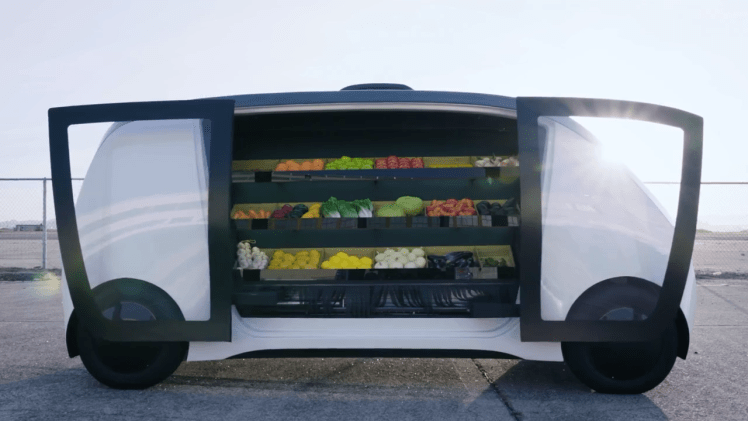Watch all the Transform 2020 sessions on-demand here.
Driverless grocery store startup Robomart plans to launch a pilot program in Santa Clara, California this fall, CEO Ali Ahmed has informed VentureBeat.
Robomart introduced its concept of a store on wheels at the Consumer Electronics Show in Las Vegas in January, but it offered the first glimpse of its driverless vehicle just a few days ago in a video shot at the company’s facility in Alameda, California, where it is currently conducting tests.
Robomart is in early talks with Santa Clara and Alameda to begin tests there this fall.
The California Department of Motor Vehicles released rules for obtaining an autonomous driving permit last month, but Robomart doesn’t plan to get one because its vehicles are teleoperated by people, not controlled by an autonomous driving system, Ahmed said.
June 5th: The AI Audit in NYC
Join us next week in NYC to engage with top executive leaders, delving into strategies for auditing AI models to ensure fairness, optimal performance, and ethical compliance across diverse organizations. Secure your attendance for this exclusive invite-only event.
In doing so, Robomart follows a similar approach to Phantom, another startup putting teleoperated vehicles on California roads.
“The robomarts will be teleoperated for the duration of the pilots. We’ve been in discussions with the DMV and don’t require a driverless permit to operate, as they will be teleoperated,” Ahmed told VentureBeat in an email.
“We will not have a hybrid teleops/autonomous approach, which leads to accidents due to disengaged drivers. Whatever testing we do of our autonomous system will be on our private facility in Alameda and not deployed to the public for these pilots.”
While startups like Phantom and Robomart have called their systems safer than autonomous vehicles being tested today because there’s always human control, groups like Consumer Watchdog’s privacy and technology project have called teleoperated vehicles “wildly unsafe” that should be “shut down immediately.”
The initial pilot program will deploy six Robomart driverless vehicles that carry things like fruits and vegetables as well as other perishable items, as well as confectionery items like snacks and candy.
Users will summon Robomart vehicles with a smartphone app. A cashless payment system driven by Stripe and Robomart’s RFID and computer vision technology handles payment.
That means customers can grab what they want and walk away.
VentureBeat has reached out to the city of Santa Clara for comment, and this story will be updated should we hear back from city officials.


